第14章 Chapter 3 Conspicuous Leisure(4)
As seen from the economic point of view, leisure, considered as an employment, is closely allied in kind with the life of exploit; and the achievements which characterise a life of leisure, and which remain as its decorous criteria, have much in common with the trophies of exploit. But leisure in the narrower sense, as distinct from exploit and from any ostensibly productive employment of effort on objects which are of no intrinsic use, does not commonly leave a material product. The criteria of a past performance of leisure therefore commonly take the form of "immaterial" goods. Such immaterial evidences of past leisure are quasi-scholarly or quasi-artistic accomplishments and a knowledge of processes and incidents which do not conduce directly to the furtherance of human life. So, for instance, in our time there is the knowledge of the dead languages and the occult sciences; of correct spelling; of syntax and prosody; of the various forms of domestic music and other household art; of the latest properties of dress, furniture, and equipage; of games, sports, and fancy-bred animals, such as dogs and race-horses. In all these branches of knowledge the initial motive from which their acquisition proceeded at the outset, and through which they first came into vogue, may have been something quite different from the wish to show that one's time had not been spent in industrial employment; but unless these accomplishments had approved themselves as serviceable evidence of an unproductive expenditure of time, they would not have survived and held their place as conventional accomplishments of the leisure class.
These accomplishments may, in some sense, be classed as branches of learning. Beside and beyond these there is a further range of social facts which shade off from the region of learning into that of physical habit and dexterity. Such are what is known as manners and breeding, polite usage, decorum, and formal and ceremonial observances generally. This class of facts are even more immediately and obtrusively presented to the observation, and they therefore more widely and more imperatively insisted on as required evidences of a reputable degree of leisure. It is worth while to remark that all that class of ceremonial observances which are classed under the general head of manners hold a more important place in the esteem of men during the stage of culture at which conspicuous leisure has the greatest vogue as a mark of reputability, than at later stages of the cultural development. The barbarian of the quasi-peaceable stage of industry is notoriously a more high-bred gentleman, in all that concerns decorum, than any but the very exquisite among the men of a later age. Indeed, it is well known, or at least it is currently believed, that manners have progressively deteriorated as society has receded from the patriarchal stage. Many a gentleman of the old school has been provoked to remark regretfully upon the under-bred manners and bearing of even the better classes in the modern industrial communities; and the decay of the ceremonial code -- or as it is otherwise called, the vulgarisation of life -- among the industrial classes proper has become one of the chief enormities of latter-day civilisation in the eyes of all persons of delicate sensibilities. The decay which the code has suffered at the hands of a busy people testifies -- all depreciation apart -- to the fact that decorum is a product and an exponent of leisure class life and thrives in full measure only under a regime of status.
The origin, or better the derivation, of manners is no doubt, to be sought elsewhere than in a conscious effort on the part of the well-mannered to show that much time has been spent in acquiring them. The proximate end of innovation and elaboration has been the higher effectiveness of the new departure in point of beauty or of expressiveness. In great part the ceremonial code of decorous usages owes its beginning and its growth to the desire to conciliate or to show goodwill, as anthropologists and sociologists are in the habit of assuming, and this initial motive is rarely if ever absent from the conduct of well-mannered persons at any stage of the later development.
Manners, we are told, are in part an elaboration of gesture, and in part they are symbolical and conventionalised survivals representing former acts of dominance or of personal service or of personal contact. In large part they are an expression of the relation of status, -- a symbolic pantomime of mastery on the one hand and of subservience on the other. Wherever at the present time the predatory habit of mind, and the consequent attitude of mastery and of subservience, gives its character to the accredited scheme of life, there the importance of all punctilios of conduct is extreme, and the assiduity with which the ceremonial observance of rank and titles is attended to approaches closely to the ideal set by the barbarian of the quasi-peaceable nomadic culture. Some of the Continental countries afford good illustrations of this spiritual survival.
In these communities the archaic ideal is similarly approached as regards the esteem accorded to manners as a fact of intrinsic worth.
Decorum set out with being symbol and pantomime and with having utility only as an exponent of the facts and qualities symbolised; but it presently suffered the transmutation which commonly passes over symbolical facts in human intercourse.